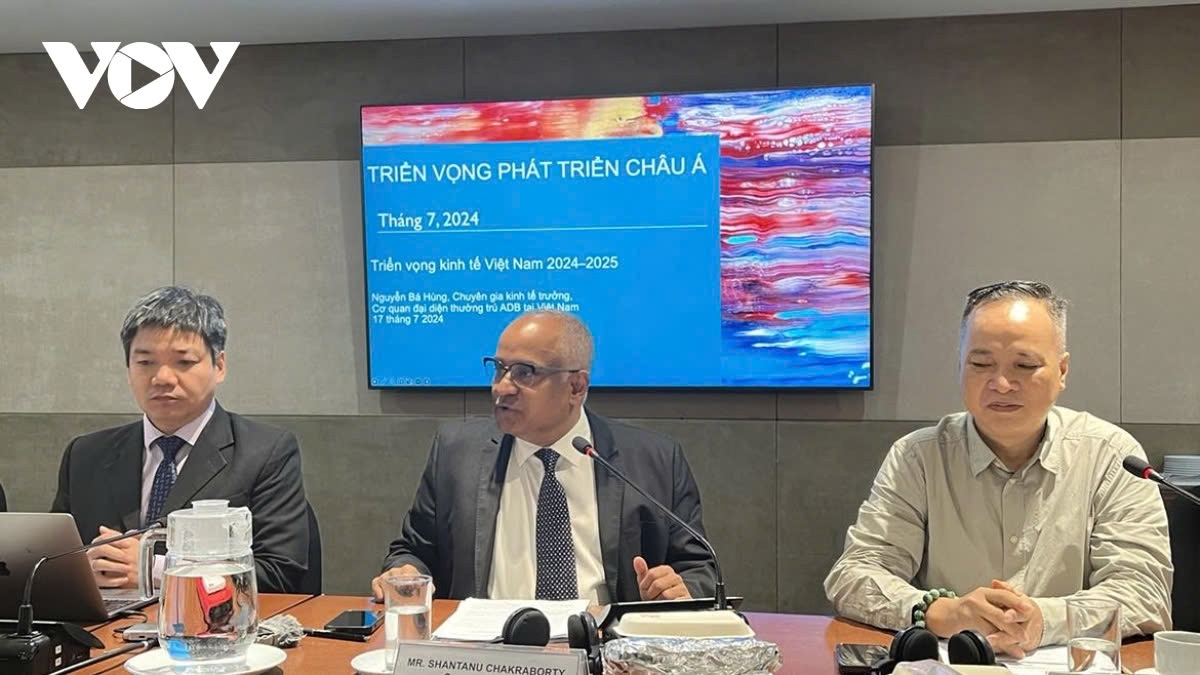ADB maintains positive outlook for Vietnamese economy in 2025
VOV.VN - The Asian Development Bank (ADB) has maintained a positive outlook for Vietnam’s economic growth in 2025, by raising its growth forecast for the economy to 6.6%, up from the 6.2% forecast made in September.

ADB Country Director for Vietnam Shantanu Chakraborty told the government portal in a recent interview that the revision was based on the country’s sound performances in trade, manufacturing, and investment, including the foreign direct investment, supported by global currency adjustments and moderate global commodity prices.
Chakraborty stated that Vietnam is striving to become a high-income country by 2030, a highly ambitious goal that requires an average annual growth rate of 7%. To make up for the lower growth during the COVID-19 pandemic, the government’s 8% growth target for 2025 is entirely reasonable and will contribute to Vietnam’s goal for 2030.
The economy will continue to grow steadily due to improvements in the investment environment, strengthened infrastructure connectivity, and the promotion of key industries such as information technology, manufacturing, and processing. Furthermore, its continued engagement in free trade agreements like the Comprehensive and Progressive Agreement for Trans-Pacific Partnership (CPTPP), Regional Comprehensive Economic partnership (RCEP) and the EU-Vietnam Free Trade Agreement (EVFTA) will create opportunities to boost exports and further integrate into global supply chains.
However, he reminded that Vietnam should prioritize not only the economic growth rate but also the quality of growth, as the country’s growth foundations need further strengthening. Therefore, this growth target (8%) should be seen as a guiding direction for the government’s efforts to promote economic growth in 2025.
Regarding the challenges for the local economy in 2025, ADB Vietnam Country Director pointed out that ongoing conflicts in the Middle East and the Russia-Ukraine conflict would continue to disrupt supply chains.
Considerable economic uncertainties in 2025, though they could have a modest impact on the Vietnamese economy, could still affect global trade and investment flows from the second half of 2025, leading to lower growth in subsequent years. In addition, Vietnam faces other challenges, regarding the quality of infrastructure, the impact of climate change, and labour shortages.
He therefore suggested that Vietnam boost public investment and supportive fiscal and monetary policies to further stimulate domestic demand, considering them additional growth drivers. He also recommended that the country focus on enhancing the skills of its workforce and address the growing labour shortages.
In the context of ongoing global economic instability and risks, Vietnam should diversify its growth drivers in 2025 and make stronger efforts to effectively implement fiscal stimulus measures, especially public investment in infrastructure, while maintaining supportive monetary policies to foster growth, he said.



